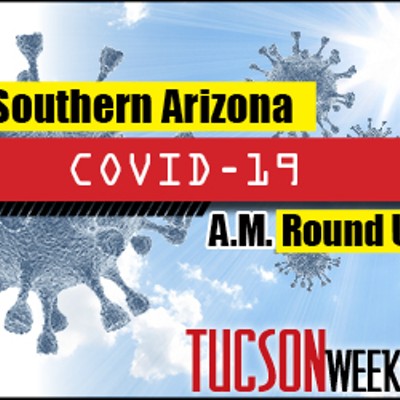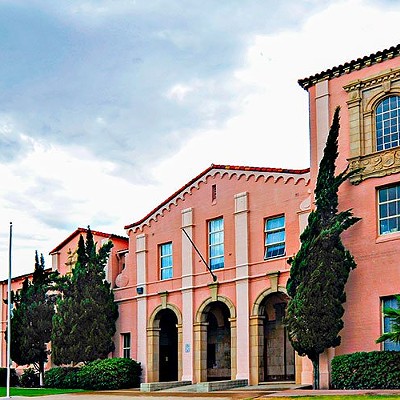Bury, appointed to the federal bench by George W. Bush, has ordered TUSD and the litigants in the desegregation lawsuit that dates to 1974 to enter discussions and to demonstrate why the desegregation order should not be lifted.
Bury inherited the desegregation case earlier this year after Alfredo C. Marquez said a conflict forced him to no longer hear and rule on TUSD desegregation matters. A member of Marquez's family hired lawyers from DeConcini McDonald Yetwin & Lacy, the same firm that has long represented TUSD.
And Bury's rulings come as Mexican-American plaintiffs are without local lawyers and are being represented by Los Angeles-based lawyers with the Mexican American Legal Defense and Education Fund. Not surprisingly, Bury's push is causing sharp splits.
Rubin Salter, who began representing African-American students and parents in the case 30 years ago, said blind elimination of the desegregation order would be a mistake.
"It is sort of like the war in Iraq. There is no exit strategy," Salter said.
Nothing can be done, Salter said, without thorough "longitudinal studies that show where we were 30 years ago and where we are now. It appears on its face that the achievement gap (between minority and non-minority students) is not narrowing but widening."
The TUSD case was filed 20 years after the U.S. Supreme Court's landmark decision in Brown vs. Board of Education, which banned separate but equal schools. The local decision said TUSD had perpetuated "vestiges" of discrimination.
Salter said it would be too risky to allow TUSD to operate with monitoring by a federal judge and the federal Office of Civil Rights. "What will be the goals, the funding?" Salter asked.
Desegregation funding is the explosive element for TUSD, where 64 percent of the district's 61,000 students are minority. TUSD's administration and its governing board have tapped a controversial tax source that does not carry with it the limitations that cap other property taxes in Arizona.
For example, TUSD has levied $62.5 million in taxes for desegregation efforts this year. That is 20 percent of TUSD's $319 million budget for 2004-2005. Desegregation taxes amount to 38 percent of TUSD's property taxes for daily operations.
Critics see deliberate manipulation. TUSD, combined with high-tax Pima County, cannot raise homeowners' property taxes for daily operations because of state law. But the district is unfettered in what it can do to non-residential property, and taxpayers throughout the state have had to pay for TUSD's desegregation programs for years.
TUSD's defiance--Governing Board President Joel Ireland pushed through a big tax increase three years ago that he joked was "fantasy"--has attracted notice. State Rep. Steve Huffman, an Oro Valley Republican who has worked to put an end to unquestioned desegregation spending in TUSD and statewide, was one to respond.
"Over the next two years, 19 school districts across our state will collect almost $400 million in property taxes for desegregation expenses," Huffman said. "This program has very little oversight or restrictions."
Success by Huffman or an order by Bury for TUSD to get out from under the desegregation order won't mean an immediate loss of $62 million. Most plans freeze levels of funding and force school districts to cut expenses to otherwise balance future budgets.
Ed Kahn, a lawyer who has monitored and opposed TUSD's desegregation expenses, said Bury's actions are forcing TUSD to revisit the original conclusions of fact and findings of law issued in 1978 by the late U.S. District Court Judge William Frey. For example, high schools and the proliferation of TUSD's magnet high schools were not part of Frey's ruling or subsequent stipulation of settlement.
Mike Tully, a former long-time TUSD lawyer who was recently thwarted by Bury in his bid to represent Mexican-American plaintiffs, agreed that the high school magnets pose a legal problem for TUSD. And he said it was ironic, "politically," that Ireland is advocating getting out of the desegregation order after he levied taxes and instituted desegregation programs for 16 years.
Bury refused to approve fees for Tully's roughly 40 hours of work, leaving the Mexican-American students and parents without local counsel or even access to a complete file. Local representation has been problematic. Michael Zavala, a former lawyer for Mexican-American plaintiffs, battled drug problems and client complaints and was disbarred in 1996. He died the following year.
The MALDEF lawyer assigned to the TUSD case did not return calls placed to his Los Angeles office.
Tully said lack of local counsel is deeply disturbing.
"Anyone who has a stake in these matters but does not have local counsel is going to get cut out," Tully said.
A cap on desegregation funding and release of the federal order will pinch TUSD in other ways, Tully said. Enrollment, though it should be increasing in burgeoning Tucson and the TUSD's territory in unincorporated Pima County, is declining from "white and black flight" to charter and other schools.
Declining enrollment means less in state funding for TUSD. And lifting the deseg order also would allow students to take advantage of open enrollment if there is space in the schools of neighboring districts, Tully said.
The irony, he said, is that TUSD is busy "remaking and reinventing itself as a Mexican-American majority district for the next 30 years" while Mexican Americans lack a firm say in desegregation proceedings.












